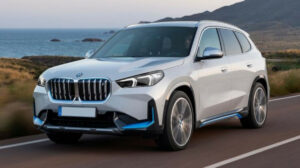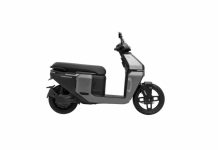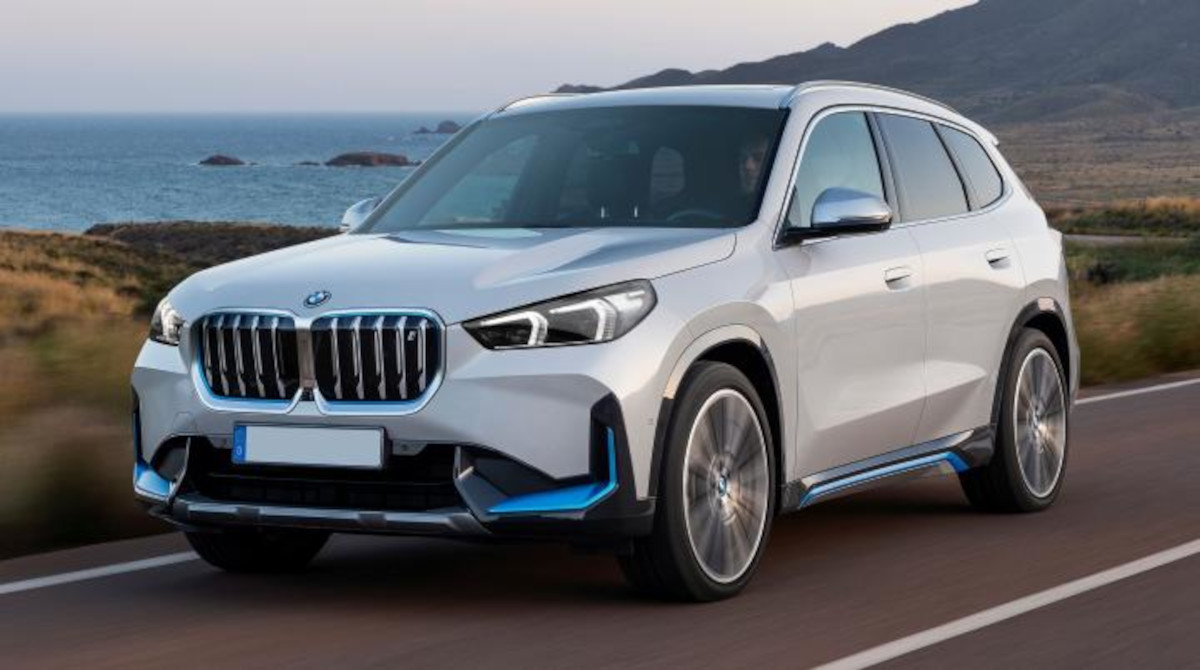The BMW iX1 seems to be a part of the growing wave of electric vehicles (EVs) that manufacturers are introducing to meet the increasing demand and adhere to stricter emission norms across the globe, including in India.
Here’s an analysis of the upcoming BMW iX1:
1. Price: If the BMW iX1 is indeed priced between Rs 60-65 lakh, it’s positioned as a premium electric SUV. The price range puts it in competition with other luxury electric and hybrid SUVs available or soon-to-be available in the Indian market. It will cater to a niche segment of consumers looking for luxury combined with sustainability.
2. Design and Styling: The blanked-off front fascia in the twin-kidney design signifies its electric nature, differentiating it from combustion-engine models. This is a trend seen in many electric versions of traditionally fueled cars, where brands maintain their iconic designs but with EV-specific twists.
Performance
3. Performance: The xDrive30 variant, with its dual-motor setup, promises robust performance figures of 313 BHP and 494 Nm. This should give it strong acceleration and overtaking capabilities, making it a powerful contender in its segment.

Range
4. Range: A 438 km range on a single charge is quite competitive. For most urban users, this would mean charging once a week or even less frequently. This range, combined with the growing EV infrastructure in India, makes it a practical choice for many potential buyers.
5. Charging: With an 11 kW onboard charger, home charging overnight should fully charge the car. The capability of fast charging up to 130 kW is also noteworthy. This means the iX1 can gain a significant amount of charge in a short span, making long trips more feasible and reducing range anxiety.
Potential
6. Market Potential: As the Indian government pushes for greater EV adoption and as infrastructure develops, the potential for EVs in the luxury segment increases. BMW, being a recognized luxury brand in India, has a good chance to capture a sizable share of the premium EV market, provided the iX1 meets the expectations of its target audience in terms of quality, performance, and after-sales service.
7. Challenges: The main challenges for the iX1 would be the price sensitivity of the Indian market, competition from other luxury EVs, and the rate of development of the EV infrastructure, especially in Tier 2 and Tier 3 cities.
Conclusion
The BMW iX1 has a lot going for it in terms of specs and brand value. Its success in the Indian market will largely depend on its real-world performance, the brand’s marketing strategies, and the growth of the EV ecosystem in the country.
































